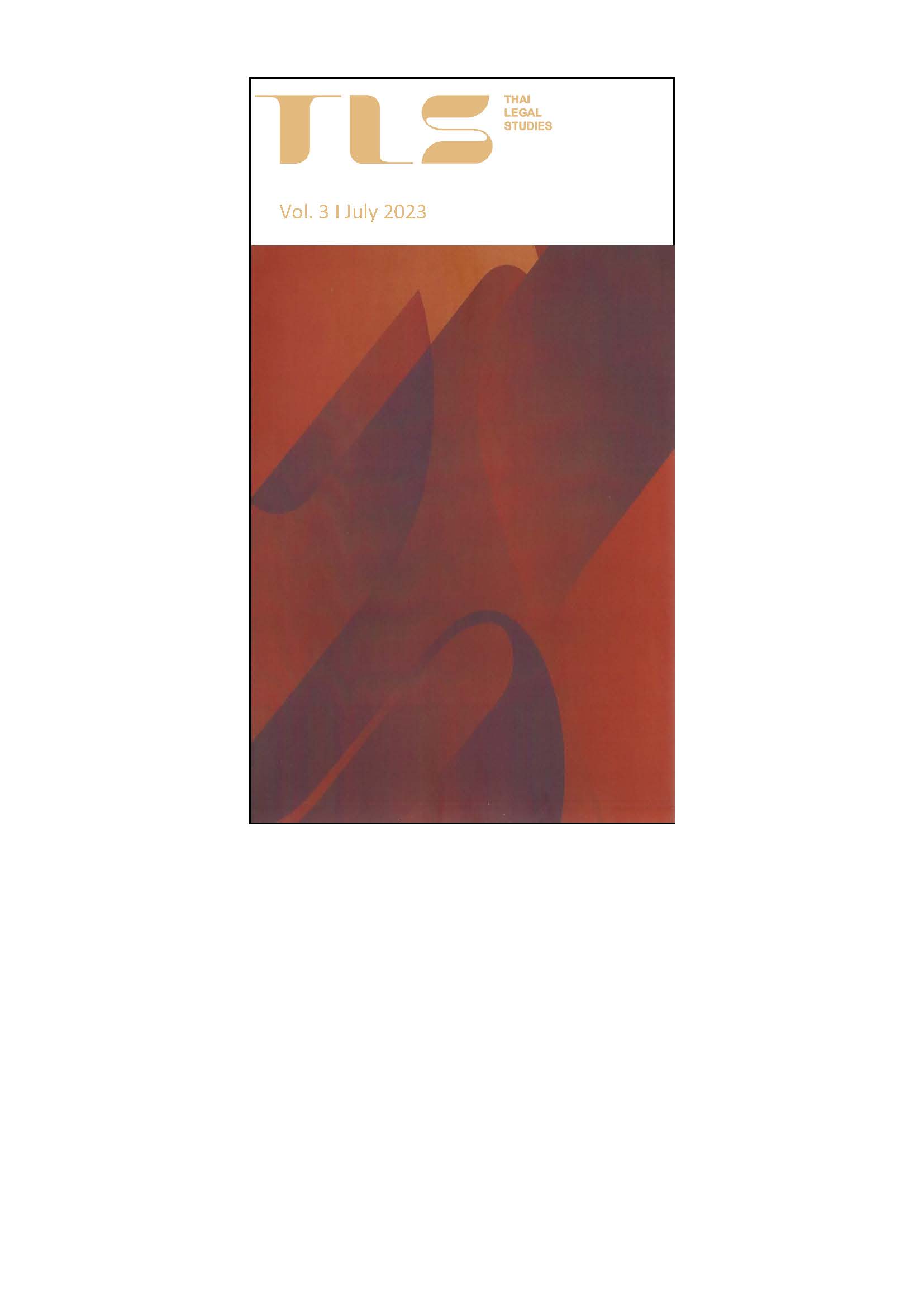An Overview of Problems with the Act on Imposition of Non-Criminal (Pinai) Regulatory Fines, B.E. 2565 (2022)
DOI:
https://doi.org/10.54157/tls.268430Keywords:
Pinai Act, Decriminalization, Over-criminalizationAbstract
As of 22 June 2023, 240 days after the Act on Imposition of Non-Criminal (Pinai) Regulatory Fines, B.E. 2565 (2022; “Pinai Act”) was announced in the Royal Gazette, it has come into effect. Questions remain over definitions of non-criminal (pinai) fines and how the Pinai Act will affect the legal system in Thailand.
“Pinai fines” are fines imposed by the state for a new type of offense called “pinai offense.” However, the appellation pinai may obscure the subject matter of the law since the term is not used in current Thai speech. It is a loanword from the ancient Law of Three Seals in which the word pinai means fines charged to the state. This word was also established in the Penal Code of Siam R.E. 127 by the term Pinai-Luang. However, the current Thailand Criminal Code B.E. 2499 (1956) no longer uses the term, unlike the words, Sin-Mai, or “compensation to the plaintiff,” the usage of which continues from the Law of Three Seals to the current law and litigation.
When referring to the Pinai Act, the purpose of the law is to create a new type of offense in the Thai legal system that is not a criminal offense, or a decriminalized regulatory offense following a concept prevalent in Germany (Ordnungswidrigkeit). Therefore, the Pinai Act will transform some criminal and administrative offenses into new misdeeds that are no longer considered criminal.
This Commentary will discuss issues related to the Pinai Act, including general principles, criteria for distinguishing pinai offenses from criminal or administrative ones, and provide some comments on the Act.
References
“Code of King Rama I.” Chunlasakkarat 1116 (1754 AD) Vol. 2, University of Moral and Political Science (Thammasat University), printed according to the royal version.
Sources in Thai
ณัฐพงษ์ เรืองปัญญาวุฒิ. “Day-fine ไม่ใช่แค่เรื่องของค่าปรับ.” [Natthaphong Ruengpanyawut. “Day-Fine Is Not Only About the Fine.”] (2022). https://progressivemovement.in.th/article/common-school/6860/
Published
Issue
Section
License
Copyright (c) 2023 Wiriya Kongsiriwong

This work is licensed under a Creative Commons Attribution 4.0 International License.
Authors retain copyright and publishing rights without restrictions, but grant Thai Legal Studies the right of first publication in English and to distribute the work under a Creative Commons Attribution 4.0 International Public License (“CC BY 4.0”). It allows others to freely share the work, including the making of translations. There is no charge or fee for readers to immediately view published articles or content, and users are allowed to read, download, copy, distribute, print, search, link to the full texts of the articles, or use them for any other lawful purpose, without asking prior permission from Thai Legal Studies or the author(s), the only requirement being that an acknowledgement is given of the work’s authorship and its initial publication in English by Thai Legal Studies.







